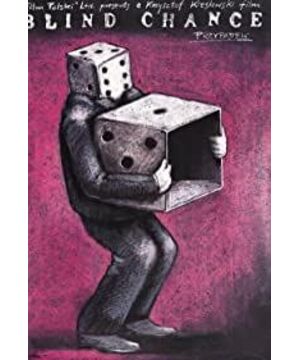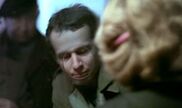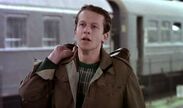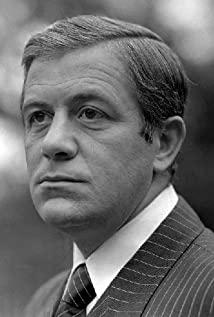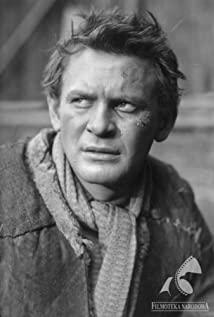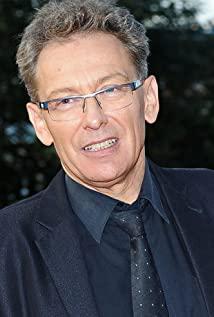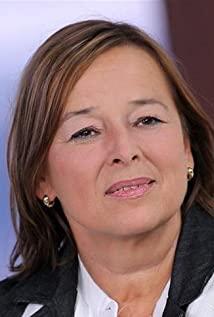In this early masterpiece, the director conveys a lament about the impermanence of life. The director uses this modern approach to demonstrate the contingency and uncertainty of life, thus bringing out the director's usual pessimistic fatalism. The detailing is excellent, as impressive as the technique employed in the film.
Kieslowski's films are full of metaphysical philosophies, a depth that begins with Blind Chance. Before that, Keille's films were also quite masterful, such as "The Fan", which is a self-reflection film that highlights the director's confusion and helplessness. When Philip finally turns the camera on himself, the meaning of introspection comes to the fore. It is undeniable that these traces of thinking make Kieslowski's films have a character and temperament that is different from ordinary people.
The success of Blind Chance lies first and foremost in the narrative breakthrough. There are many articles about narrative strategy. In fact, novelty in form requires fullness of content. Only in this way can we not fall into the rut of formalism. Just like the associations and symbols that montage forced to the audience in the later stage, it is particularly far-fetched, so there is Bazin's "Forbidden Montage", which advocates deep focal length lenses and long lenses, and emphasizes the sense of reality. This involves a discussion of the relationship between form and content. The originality of Kieslowski's narrative in Blind Chance lies in the novelty of form on the surface, and the need for content inside. And this innovation created a huge following: "The Butterfly Effect", "Sliding Door" and "Lola Run", which is regarded as a classic. Indeed, due to the development of film technology, coupled with the sense of the times and light-hearted banter presented by the film, the seriousness of "Blind Chance" is defeated.
These successors made the dazzling form to the extreme, but they could not cover up the emptiness of spiritual essence. In "Lola Run", there are still a large number of critics who have interpreted feminism, philosophical speculation, and the new century film revolution, etc. Compared with "Blind Chance", they are less serious in their approach to life philosophy and use a "game" approach. Eliminate the heaviness of life itself. In terms of lens language, light, tone and music, the successor is more successful in using many elements to highlight the texture of the film, and it is more in line with the tastes of many people in terms of appreciation. The camera movement in "Blind Chance" is poor, with a large number of fixed shots, and there are almost no front and back shots in the dialogue scenes, the light tends to be natural light, and the gray and white tone shows the texture of the documentary, giving people a melancholy feeling, the use of music It's nothing compared to Keyer's later films. For example, the warm colors, orange light, filters, and music in "Veronica's Double Life" all bring out the poetic atmosphere of the film, and these elements have become an indispensable dimension in the narrative. And "Blind Chance" may be the flatness of these elements that highlights the film's plainness. However, the harshness of life attitudes cannot be "entered" for most audiences today.
Is life accidental or inevitable? Can chance change the trajectory of life and break the inevitability? Or is there only one ruthless necessity in life in the end, regardless of the many coincidences? These are the expressions of "Blind Chance" that transcend forms, and are also related to a series of tortures in politics, religion, and morality, forming a speculation on the value of life and the beliefs that people are attached to.
The first time Witke caught the train, met the politician Wiener and joined the party and became a political activist. Political belief became Witke's life support in the first story. When he realized that he was nothing more than a pawn in the power struggle, Witke started the second possibility by starting over. This time Witke became a member of the Free Trade Union, began to believe in God, and through "God" was convinced of the justice of the activities of the anti-government workers' organization. Unfortunately, Witke was suspected of betraying the organization, so the faith collapsed. Witke could only change again, a third time away from politics and religion, to become a doctor. But this time it was a journey of death. Contingency has been resisting, and finally lost to death. All three stories end by mentioning that Witke is going to France, and that flight to Paris is a call to death. Is this the inevitable fate that Witke cannot escape?
Perhaps "this is not an accident" from the film's many appearances has already shown Keille's attitude. But from political beliefs to religion to anarchy, does this mean that human beings will not be able to continue their life without them? Accidentality here carries the content that the director needs to discuss. Chier uses this form to complete the entire speculative process, and the many possibilities presented by life can only be interpreted by chance. Kier also seemed convinced of the power of chance. Comprehensive consideration: Kieslowski wants to use contingency to resist inevitability, and calls for an emphasis on contingency in life and a more rigorous life.
In addition, because of the particularity of the political climate in Poland at that time, the film naturally involved a criticism of the politics at that time. Although Kieslowski's ideological inclination is relatively vague, it more or less reflects Kie's political sensitivity and resistance to the system. Fundamentally, Kieslowski is a humanitarian. Keye's strength lies in his speculation on human emotion and existence, which is also the universal significance of Keye's films.


